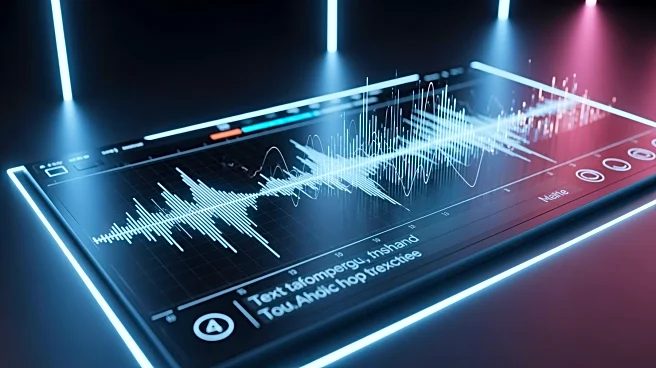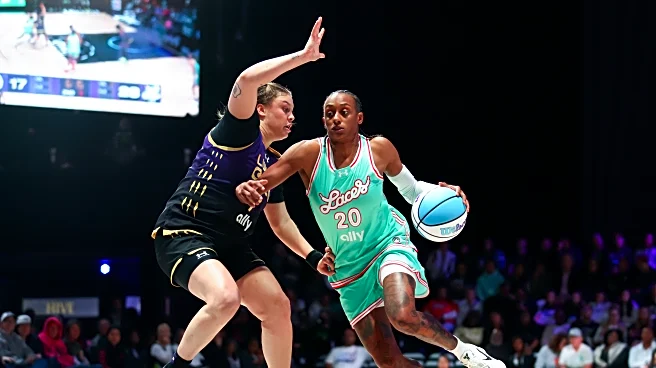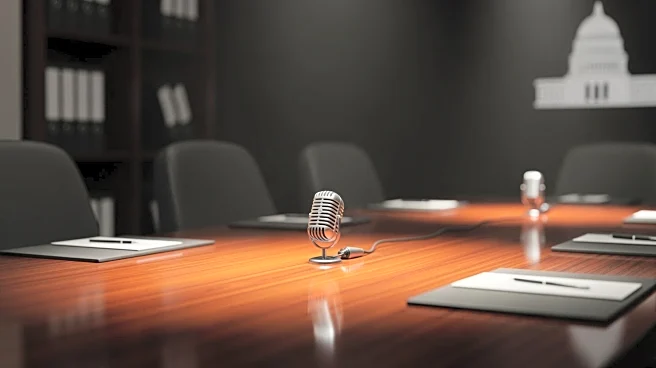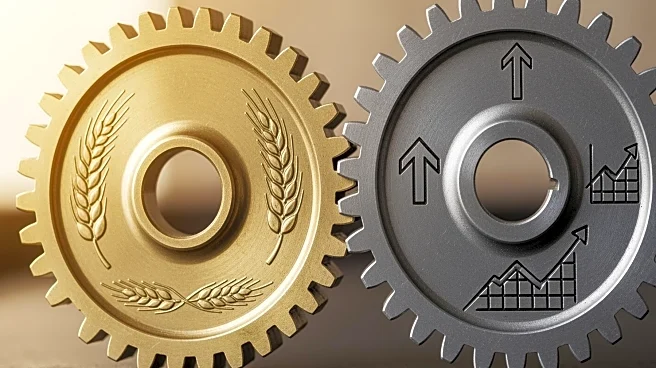What's Happening?
OpenAI is reportedly developing a new tool that enables the creation of music from text or voice inputs. This innovative project is being undertaken in collaboration with students from a prestigious music school in New York. The tool aims to leverage
artificial intelligence to transform textual descriptions or audio cues into musical compositions, potentially revolutionizing how music is created and experienced. OpenAI's initiative reflects its ongoing commitment to exploring the capabilities of AI in creative fields, expanding beyond its existing applications in language processing and image generation.
Why It's Important?
The development of a music creation tool by OpenAI signifies a significant advancement in the intersection of artificial intelligence and the arts. This tool could democratize music production, allowing individuals without formal musical training to create compositions simply by describing their ideas. It also poses potential impacts on the music industry, where traditional roles and processes might be redefined. Artists and producers could benefit from new creative possibilities, while educational institutions might integrate such technology into their curricula to enhance learning experiences. However, it also raises questions about the authenticity and originality of AI-generated music, challenging existing norms in artistic creation.
What's Next?
As OpenAI continues to develop this tool, further collaborations with educational institutions and industry stakeholders are likely. The tool's release could prompt discussions among musicians, producers, and technologists about the ethical implications and potential regulations surrounding AI-generated music. Additionally, OpenAI may seek feedback from early adopters to refine the tool's capabilities and address any concerns related to intellectual property rights and the quality of AI-generated compositions. The broader adoption of such technology could lead to new business models and opportunities within the music industry.
Beyond the Headlines
The introduction of AI-driven music creation tools could lead to a cultural shift in how music is perceived and valued. As AI becomes more integrated into creative processes, the definition of artistry and originality may evolve, prompting debates about the role of human creativity versus machine-generated outputs. This development also highlights the growing influence of technology in traditionally human-centric fields, raising questions about the future of employment and skill development in the arts.















